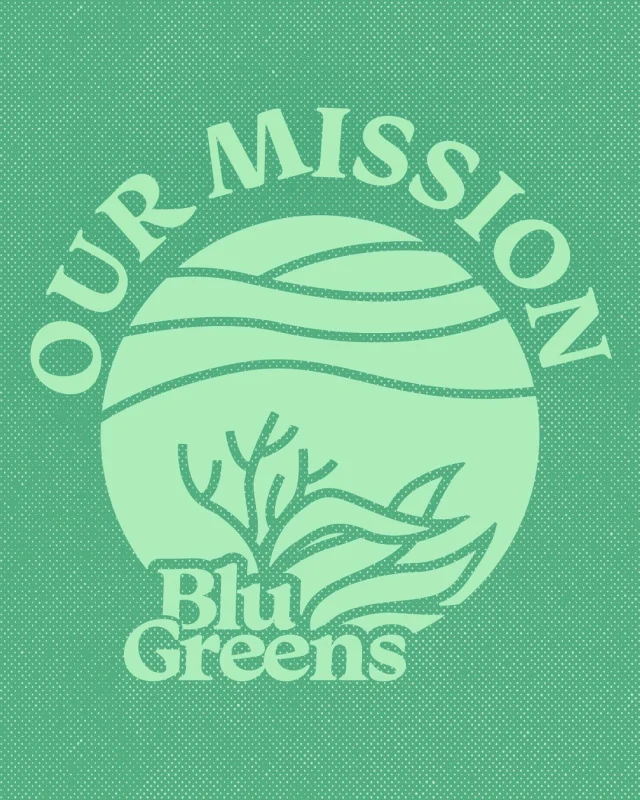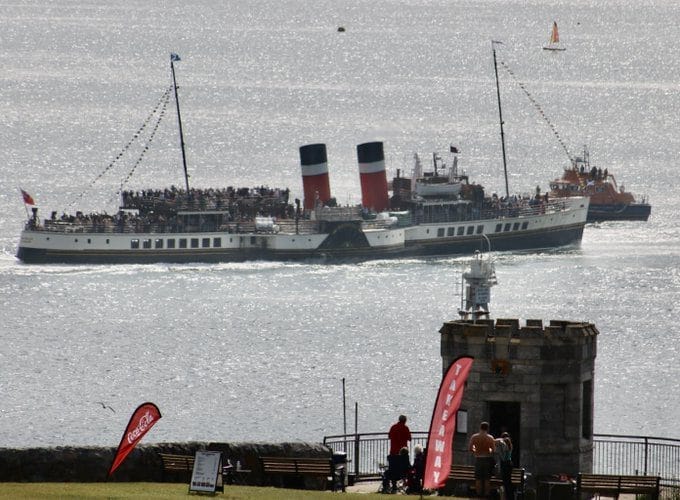Seaweed farming is emerging as one of the UK’s promising growth and sustainable green industries in the 21st century.
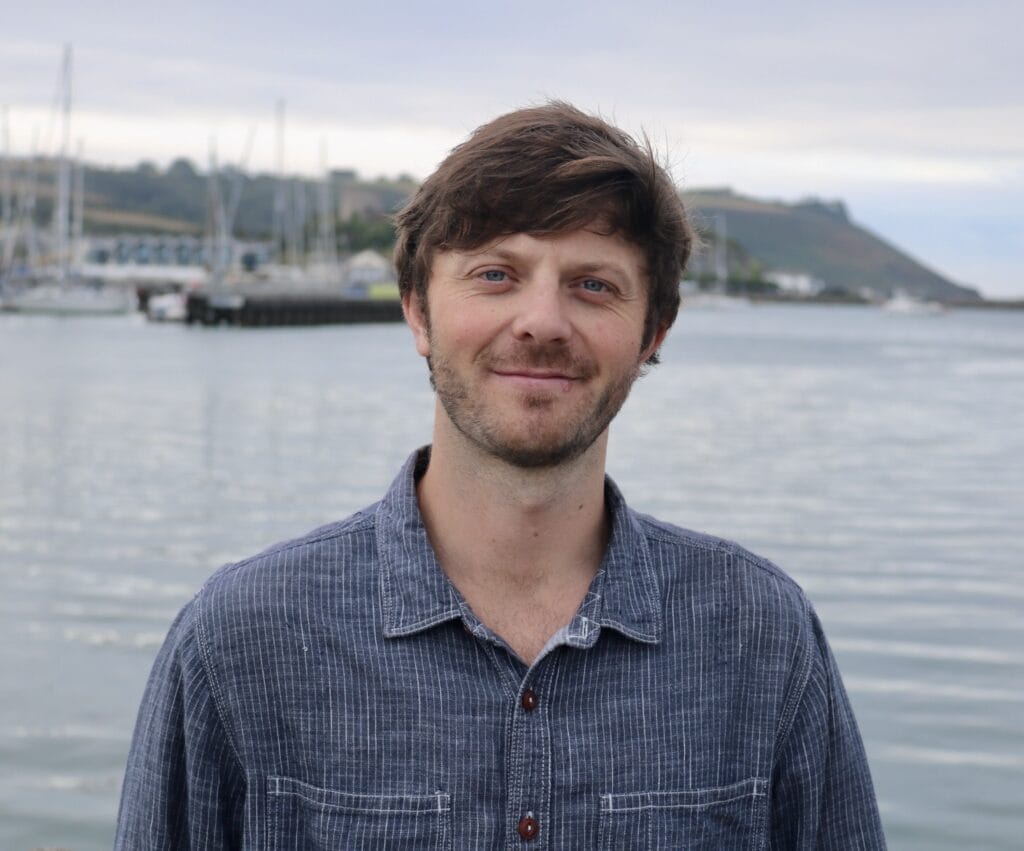
Plymouth entrepreneur and coastal engineer Tobias Stevens-Fleming, of BluGreens Limited, has been testing the waters.
BluGreens has been supported by the Cattewater Harbour Commissioners, where Tobias has developed a pilot kelp farm within Plymouth’s Cattewater Harbour.
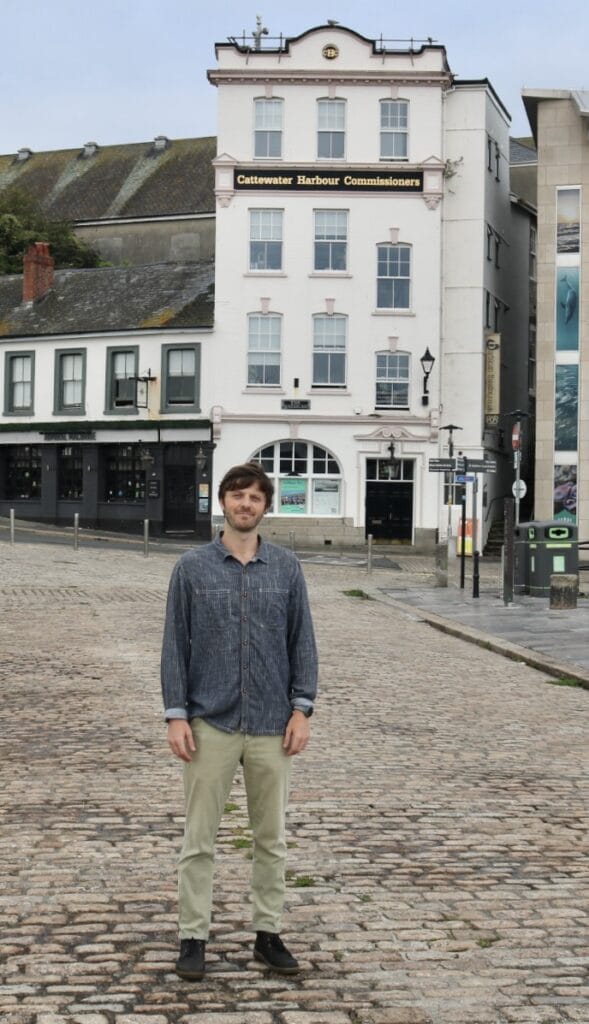
The initial study, and the first of its kind for Britain’s Ocean City, was set up to examine how marine assets could be repurposed and how rope-grown seaweed would function in this environment during the winter months, said Tobias.
“As autumn comes to a close, most yachts are lifted from the water and dry-stored for the winter, leaving moorings unused.”
“This coincides with the main growing season for sugar kelp from October to May.”
“Fortunately, the elements that make up these moorings, anchors, chains, and floats are also the basic components needed to grow seaweed. Moorings therefore provide a cost-effective opportunity to farm kelp, with a variety of environmental benefits resulting from this cohabitation.”
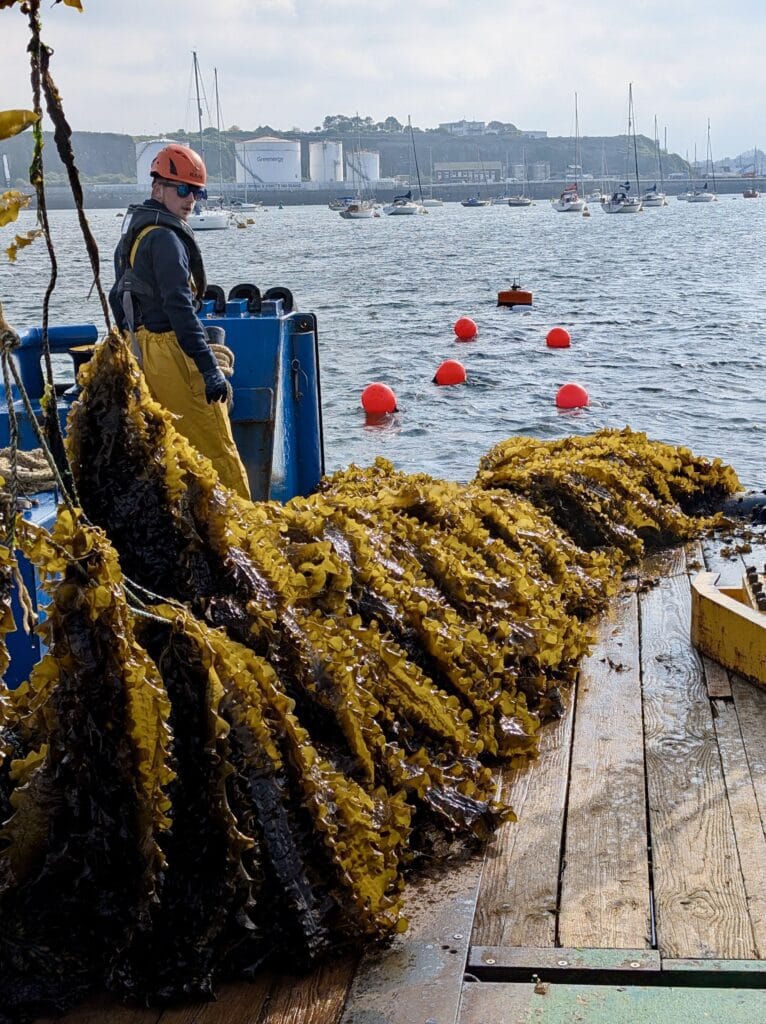
“The Cattewater Harbour Commissioners have shared my vision and have been amazing in supporting my enterprise,” said Tobias.
“Part of BluGreens approach has been to build slowly, evaluating the process and the benefits of farming kelp in collaboration.”
“We are also collaborating with the University of Plymouth as part of an MSc thesis, evaluating the role of kelp to support water quality improvements, with further studies planned for 2026,” he said.
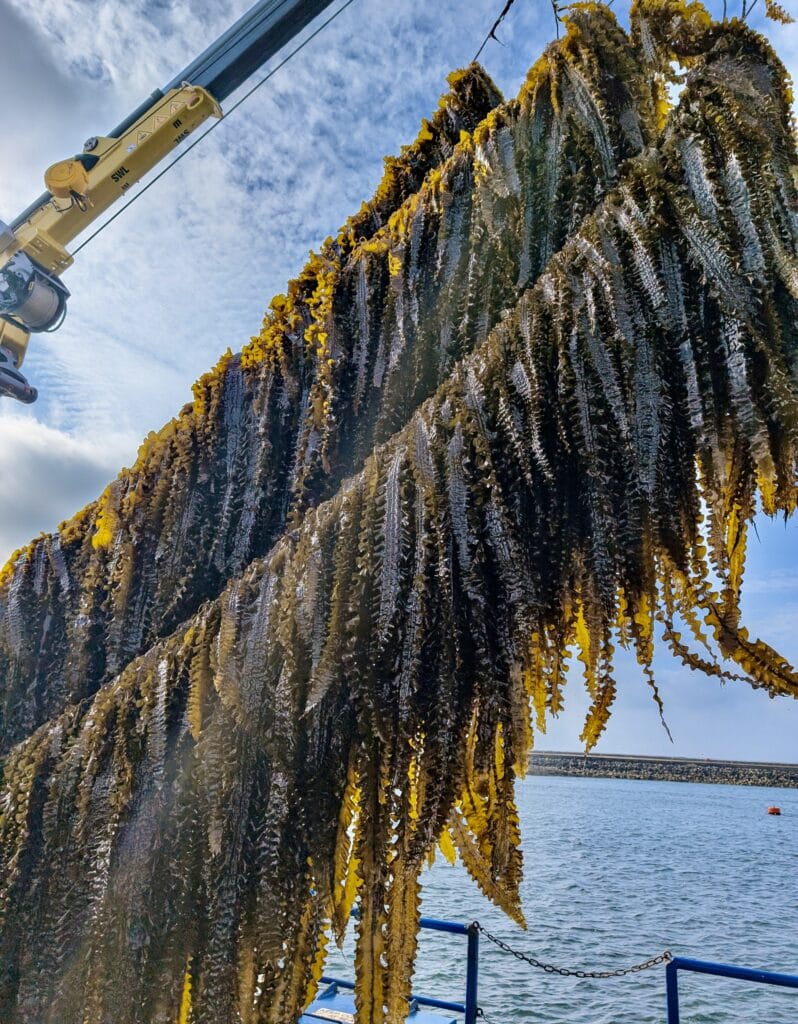
“The global seaweed market is expected to grow to over 12.1 billion USD by 2030 and is taking the health and food industry by storm. Driven by its eco credentials, seaweed is now being found in everything from seaweed garments to meat substitutes.”
“BluGreens is positioning itself in the agriculture marketplace and aims to produce seaweed extracts to support regenerative farming practices that reduce the reliance on synthetic fertilisers by enhancing nutrient efficiency.”
“We are supporting a closed-loop economy, absorbing nutrients from the water that are placed back on the land to grow crops.”
“In 2023 our first harvest was 23 Kilos, and in 2024-2025 over 1,500 Kilos, and we hope to expand again this year, aiming for 15,000 kilos in 2026,” said Tobias.
BluGreens has an impressive network of collaborative partnerships across the Southwest and is looking to assess future opportunities and partnerships for seaweed farming.
“Our aim is to create a blueprint for farming seaweed in collaboration with harbours and enabling coastal communities to diversify into seaweed farming, with operators managing sites across the UK,” said Tobias.

For more information about BluGreens, you can view on their website: https://www.blugreens.co.uk/
BluGreens Slide Deck – Support 2025.pdf FROM SEA TO SOIL

